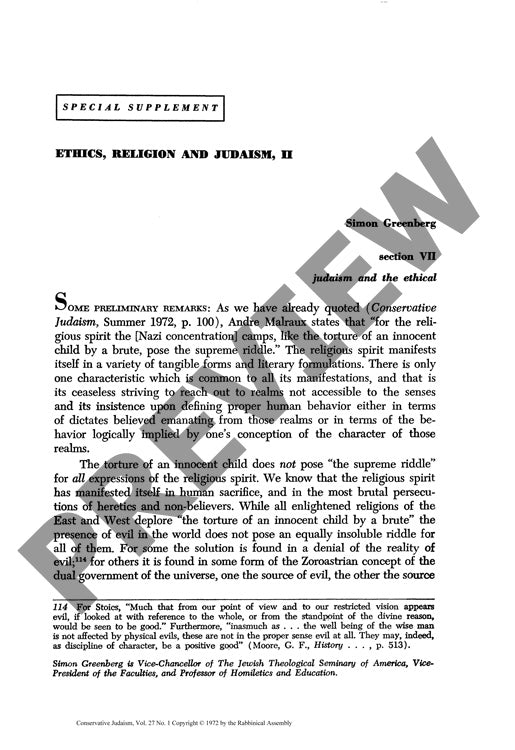Ethics Religion and Judaism Part Ii
Couldn't load pickup availability
Why do ethical principles require divine authority? Judaism insists that even seemingly self-evident moral behaviors must stem from divine revelation rather than human reason alone. Through analysis of foundational Jewish texts including the Hebrew Bible, Babylonian and Jerusalem Talmud, and Rabbinic Midrashim, a distinctive theological approach to ethics emerges. Judaism categorizes divine commandments (mitzvot) into two interlinked spheres - those governing human relationships and those governing divine-human relationships - while emphasizing that religiously motivated ethical action (lishmah) provides greater moral stability than secular alternatives. The tradition maintains that human reason and emotion, though valuable, cannot independently sustain consistent ethical behavior without divine reinforcement. This theocentric framework reveals how Judaism resolves the tension between rational moral philosophy and religious authority, offering insights into how faith traditions more broadly conceptualize the foundations of ethical behavior. The findings illuminate key differences between religious and secular approaches to moral reasoning, demonstrating Judaism's unique solution to grounding ethical principles in divine revelation while engaging human rational faculties.

More Information
-
Physical Description
-
Publication Information
Published 1972
ISBN
-
Publication Credits
Simon Greenberg

